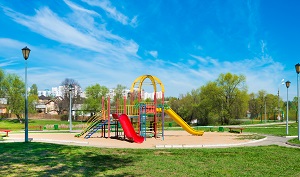The financial health of an HOA is an important matter not just for the HOA board, but also for members as well. How would you know about the fiscal health of the HOA? There are many ways to check HOA’s financial health. Your home and neighborhood are always worth the time to look into your HOA financial stability. In this guide, we’ll take a look at the ways you can evaluate HOA financial health from a member’s perspective.
HOA Fiscal Health: Where To Start Checking?
Every homeowners association is unique. That’s why it can be difficult to form an exact opinion about the status of your HOA health when it comes to HOA financial management. However, knowing where your community stands in this area can be extremely helpful. There are a few ways that you and the rest of your fellow homeowners can assess the overall health of your association’s finances.
You don’t have to be a financial expert to gauge the financial health of an HOA. You can just walk around, observe, and take notes. Hopefully, you’ll soon see the signs of a well-run association. You may see areas for improvement, as well.
Check The Quality of The Landscaping Maintenance
 Living in a managed community is not just about your personal property. You also have the common property to consider, as well. It’s your money that pays for the maintenance and repairs of these common areas. Some of it comes out of your regular association dues. Part of it may come out of special assessments you pay for if any. In any case, it’s a good idea to check if your fees are being used well.
Living in a managed community is not just about your personal property. You also have the common property to consider, as well. It’s your money that pays for the maintenance and repairs of these common areas. Some of it comes out of your regular association dues. Part of it may come out of special assessments you pay for if any. In any case, it’s a good idea to check if your fees are being used well.
Are the common grounds clean and well maintained? How about the walls and outdoor fixtures – are they in good condition? It’s not easy to check on the roofs of the common buildings, but they should be in good repair as well.
You’ve seen the obvious areas like the entrance and the clubhouse. Most HOAs and COAs will make sure that these properties are at their best condition. After all, these are the places that homeowners and guests will see often. If you walk around, rather than driving, you’ll soon notice a few spots that may need attention.
Visit The Amenities and Common Buildings
 After a tour of the grounds, it’s time to head indoors. Are your community swimming pool or clubhouse in good order? Things like these, even if they are not your property, can still affect your property value. You and your fellow HOA board members pay regular HOA fees. Some of these are supposed to pay for the upkeep of common areas. Is your money going where it’s supposed to?
After a tour of the grounds, it’s time to head indoors. Are your community swimming pool or clubhouse in good order? Things like these, even if they are not your property, can still affect your property value. You and your fellow HOA board members pay regular HOA fees. Some of these are supposed to pay for the upkeep of common areas. Is your money going where it’s supposed to?
Check the condition of the lobby of your common indoor space. Do the walls and floors look clean and recently updated? Looking at things like clubhouse furniture and carpet are easy ways to see signs of neglect. A well-run association should be able to keep up with things like fitness equipment, vending machines, furniture, and other things that see frequent use.
Have A Chat With Other Homeowners
It’s always a good idea to stop and introduce yourself to your neighbors. A friendly chat with your fellow homeowners can reveal a lot of things about the community. First, you will immediately notice if they are happy with their neighborhood. It’s likely that you’ll hear some complaints, as well. Look for complaints that you hear often. They could be signs of issues with the financial health of an HOA.
Ask To a Look At The HOA Budget and Reserve Funds
If you have the financial expertise for it, you can always opt to go check the budget yourself. As someone who contributes to the budget, you want to know if your money is being managed well.
One of the best ways that you can find out how healthy your HOA finances are is to take a detailed look at its reserve fund. A healthy reserve fund is often a sign of a well-run association. Here are a few questions that you can ask about the reserve fund to see if it is sufficient.
- Is our HOA up to date on critical repairs and basic maintenance?
- Does our board spend time worrying about unexpected repairs?
- Were we able to complete all of the needed projects in the previous year, or did some go unfinished due to lack of funds?
- Do we have specific goals and plans for our reserve fund?
Ideally, your board should feel confident that the reserve fund can cover unexpected repairs, and have maintenance by a quality vendor. They should also have clear plans for your reserve fund, as well. If they do, and your HOA has a very healthy reserve fund, those will contribute to the overall financial stability of your HOA.
On the other hand, an association with low reserve funds could be heading for trouble. The same goes for an HOA that has not established a reserve fund at all. If you think your HOA does not have enough reserve funds, then it’s likely that you and your fellow homeowners will be covering the shortfall. If you happen to live in an HOA with low reserves, expect to shoulder special assessments in the near future.
Frequently Asked Questions
 Here are some of the questions that board members ask their association when it comes to their finances.
Here are some of the questions that board members ask their association when it comes to their finances.
What year did the HOA file its latest tax return?
Community associations should be filing tax returns every year. Your HOA could lose its non-profit status, on top of paying steep fines, for failing to file tax returns.
Do we have a reserve study?
Not all states require HOAs to have a reserve study. Just about every well-run association, however, will insist on one anyway.
Is our reserve account fully funded as outlined in the reserve study?
An HOA reserve fund that’s funded below 30 percent of its target is a high risk. It means you can expect special assessments to come if any major repairs come up.
What is the current delinquency rate?
A well-run HOA can efficiently collect at least 93 to 95 percent of its target dues on time. That translates to a delinquency rate of 7 to 5 percent.
Help Your Association Attain Financial Stability
It is prudent for HOA members to assess the financial health of the association on a regular basis. Doing so will help you have a more successful community, by having your feedback reach the HOA board. For more information on how to improve the financial health of an HOA, give us a call. We’re always ready to help a community live up to its potential.
RELATED ARTICLES:
- HOA Financial Reports: What Every HOA Board Member Should Know
- 6 Practical Reasons Why You Should Outsource HOA Accounting
- What Are The Standard Financial Statements For An HOA?

